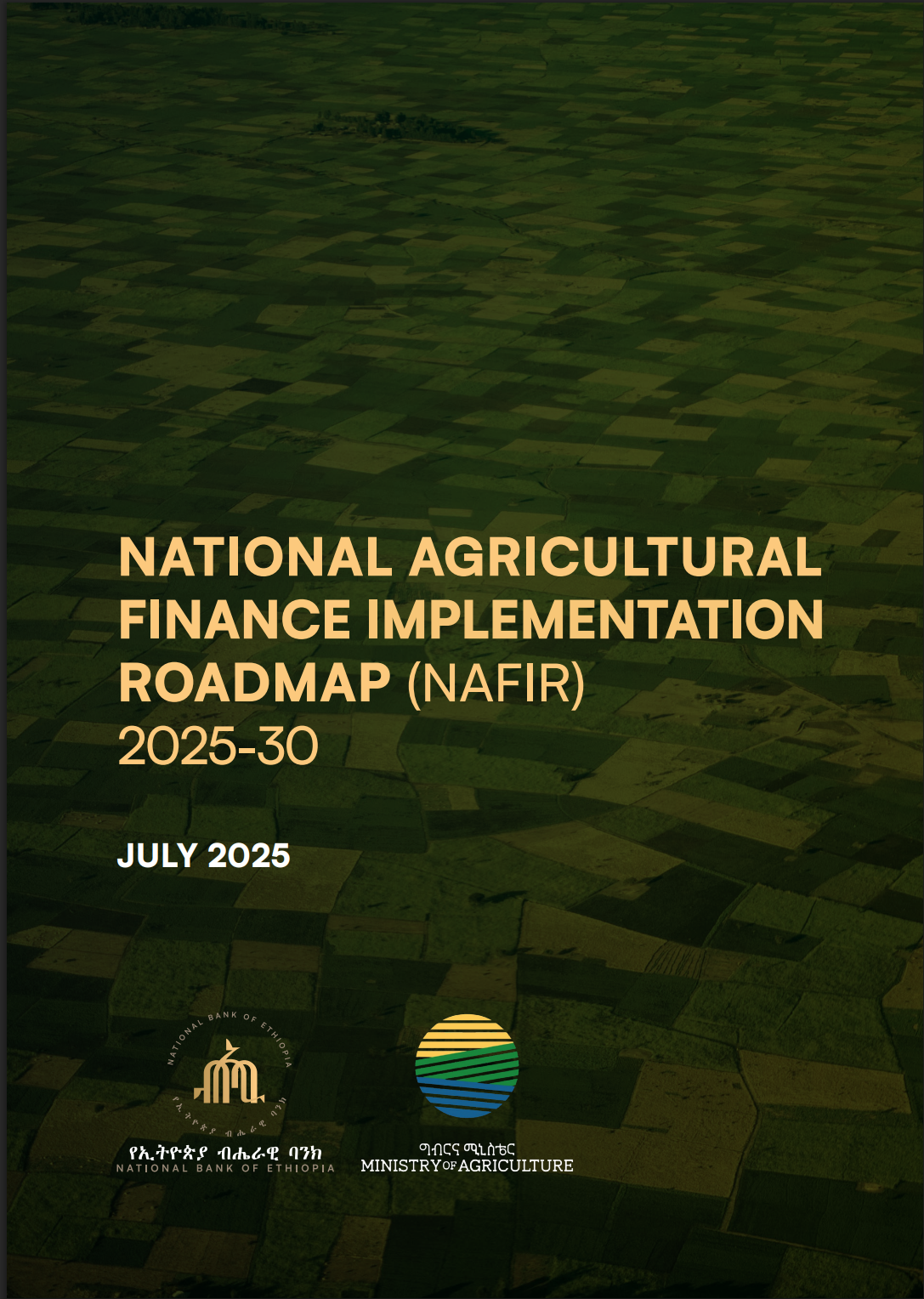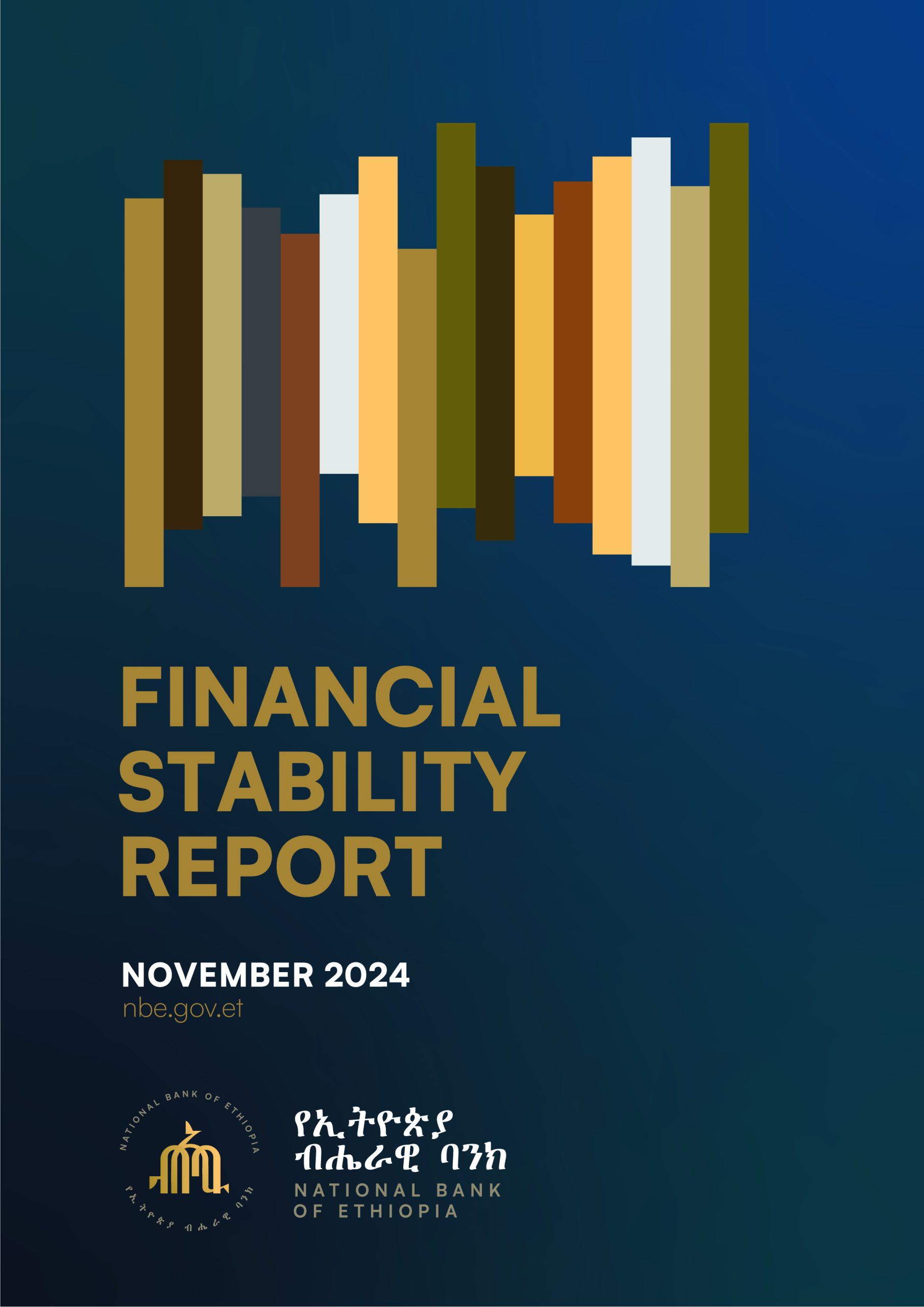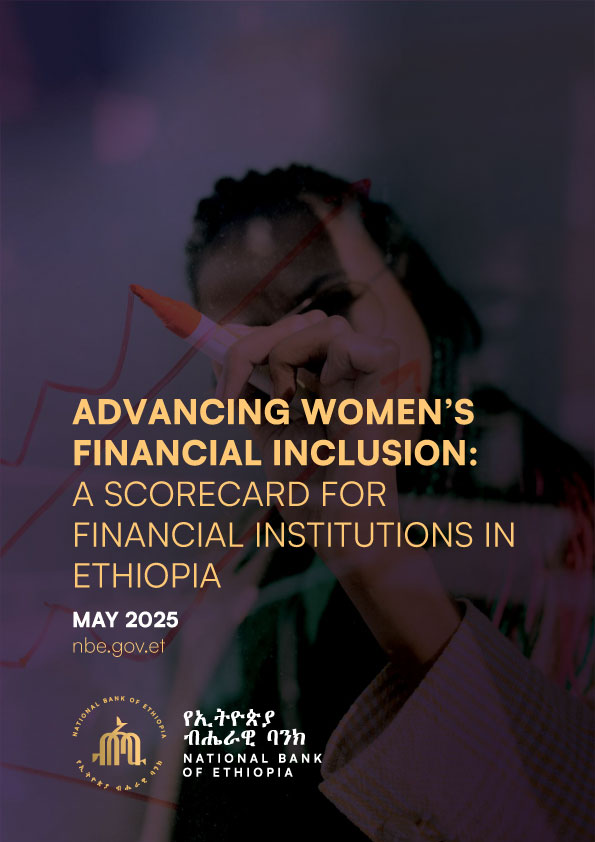WELCOME TO THE
NATIONAL BANK OF ETHIOPIA.
As the central bank of Ethiopia, we work to ensure price stability and the safety and soundness of financial institutions.
Interest Rates
16.31%
NBE POLICY RATE (NBR)
15%
LATEST
FEATURED CONTENTS

National Agricultural Finance Implementation Roadmap 2025-30 (NAFIR)
National Bank of Ethiopia along with the Ministry of Agriculture Issues NAFIR.

Financial Stability Report
National Bank of Ethiopia Issues Second Financial Stability Report.

Advancing Women's Financial Inclusion:
A Scorecard for Financial Institutions in Ethiopia.
Quick Links
Frequently Asked Questions
The National Bank of Ethiopia is the central bank of Ethiopia. It plays a pivotal role in the country’s economic and financial system by serving as the regulator of the financial sector and the formulator and implementer of monetary policy.
Learn more about what we do and how we do it.
The National Bank of Ethiopia, as the country’s central bank, does not provide loans directly to individuals or businesses. Its primary role is to maintain monetary stability and oversee the financial system. However, it does extend credit to the government and commercial banks as part of its monetary policy operations
We provide a range of free education materials about our notes and their security features. These include leaflets and posters that can be downloaded or ordered online, as well as short films and online training.
We set rules for how banks should be run financially. These rules ensure banks have enough capital (money or other wealth such as property or shares) and the right plans and structures in place.
We monitor banks to ensure they follow our policy. We do this by keeping in contact with bank staff at all levels so we can keep an eye on things like their accounts and the way they work. We call this work ‘supervision’.
If a bank does get into difficulty, we work with it to ensure that firms have orderly wind-down plans in place.
Using regulation and supervision, we try to make sure that banks are run properly, and that if a bank fails it doesn’t cause widespread problems in the economy.
SWIFT is a secured telecommunication system serving members and the financial community. The word SWIFT represents Society for Worldwide Inter-bank Financial Telecommunication. It is a reliable and less costly method to transfer money. All banks in Ethiopia use the system to effect monetary transaction.
All eligible individuals can get foreign currency from commercial banks for these and other purposes.